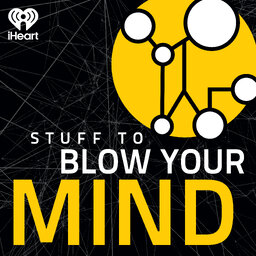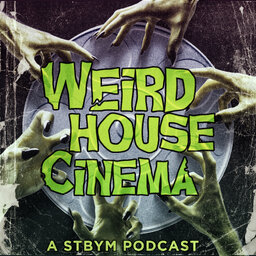Stickiness, Part 3
We encounter sticky surfaces and sticky substances everyday, but what exactly IS “stickiness?” In this episode of Stuff to Blow Your Mind, Robert and Joe discuss the physical properties of stickiness and look at some very sticky examples from the natural world.
In 1 playlist(s)
Stuff To Blow Your Mind
Deep in the back of your mind, you’ve always had the feeling that there’s something strange about re…Social links
Follow podcast
Recent clips

From the Vault: Mystery Cults, Part 3
1:03:47

Weirdhouse Cinema Rewind: Forbidden Planet
1:34:55

From the Vault: Mystery Cults, Part 2
53:07
 Stuff To Blow Your Mind
Stuff To Blow Your Mind